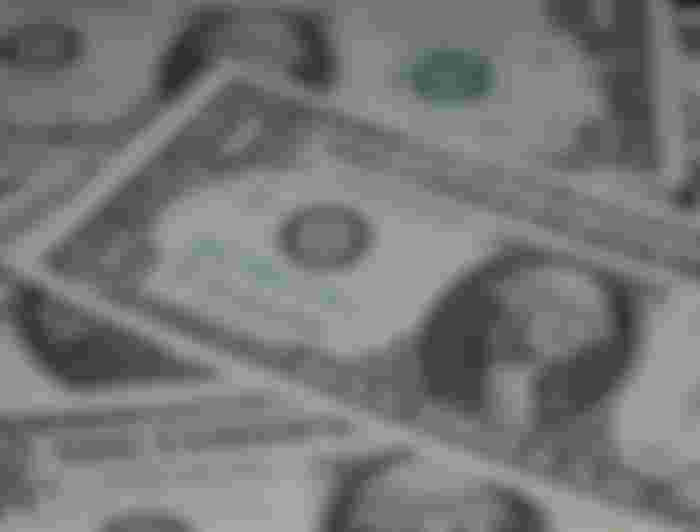Warning! This article was written by me a very long time ago, and no longer accurately reflects my views! Reader discretion is advised.
All of my more observant readers already know, that I don't think very highly of the concept of wealth redistribution (unless it's UBI, which is awesome). But why is that? Well, today, I will make my final arguments against wealth redistribution, and even act as the devil's advocate even against my own love for UBI.
1. Somebody has to pay
In real life, nothing ever comes for free. This is not a law of Capitalism, this is a law of the physical universe we live in. You may do someone a favour for free, or hand them over an object for free, but doing so costs you energy to do so. It was merely your own choice not to monetize said energy.
However, ultimately, you need to acquire certain resources - such as food and water - to survive, and a location to shield yourself from the elements (namely, a house) doesn't hurt either. However, the production of said resources and the construction of houses both consume other resources and energy - energy and resources that are, in fact, monetized. Thus, money is required to survive in this world. This is not a "Capitalist" thing - price tags were attached to food and water even in the Soviet Union.

So, what happens when the state gives you certain things - namely, education and healthcare - for "free"? Well, I'd hate to break it to you, but it's not really free - the government pays for it on your behalf, the government employs people to provide those services and resources to the populace, and just like any other employer, the government has to pay these people, so that they may buy food, water, shelter and other amenities.
But how does the government finance it? How does the government pay all these people to provide you various services for "free"?
Taxes
That's the simplest answer. The government has to pay for all the things it gives you for "free", and how does the government finance itself? Taxes. In most countries, the lion's share of the government's income will come from personal income tax, which is to say, that the government will slice off part of your income every month. There are other kinds of taxes, and I'll get into them later.
When the government gives you something for "free", ultimately, you are still paying for it in the form of taxes. The higher income you have, the more you are paying for a service you may not even need (or can acquire a higher-quality equivalent of via a private company). This is the truth even when the country has a flat tax (you pay a certain percentage of your income) - but some countries get extra-punitive via progressive taxation, which basically puts people into categories based on their level of income, and adjusts the percentage they have to pay accordingly.

If we assume that a single doctor can provide healthcare to around 300 people, then in a country with a population of 10 million people, there have to be 33333 doctors. If doctors are given a rather high salary of 4000$ USD per month, then that's 133 332 000 USD per month.
If we assume, that out of the 10 million, there are 4 million people who work for anyone other than the state, and the average monthly income is a modest 820 USD with a flat 20% tax (thus, the actual income is 650 USD), then the state's monthly tax revenue is roughly 656 000 000. More than enough to pay for the doctors. But what if the state's budget is already full? What if that 656 million dollars is already spent on other things, and the state just cannot spare? Well, in that case, taxes have to be increased by 20.325% - to a whopping 40.325%! -, which reduces the average individual's monthly net salary from 650 USD to ~490 USD. Sheesh! That's almost half of your monthly income taken away by the statist mafia! (and all of that under the very naive the assumption that all that taxpayer money is spent on good causes, rather than just corruption, and luxury goods for politicians)

That's 160 less dollars the average citizen can spend per month - and remember, the citizens still need to spend money on food, water, rent, electricity, Internet connection, clothes, maintenance (of their car, electric appliances, etc), etc.
And I know, Socialists are all ready to burst out screaming "WE'LL JUST TAX THE RICH, HÖ-HÖ..." - yeah, but.... you do realize, that the rich will simply find loopholes to avoid taxation? Jeff Bezos didn't pay any taxes in 2020. That's why they're rich in the first place - because they're smart. If you are smart enough to become so rich, you so are also smart enough to outsmart the government. And if by some miracle, you'll just plug those loopholes, guess what - the rich will simply leave your country for some tax havens, and show you the middle finger.

If we want to just give people "free money" (Universal Basic Income), well.... for 10 million people, giving each 500 USD per month would cost the government 5 000 000 000 dollars per month. How the hell are we going to finance that? Even at an unrealistic 100% taxation rate, we can only squeeze out from people as much as they make - and if the 4 million non-governmental workers each only make 820 USD per month, then we can't squeeze out any more than 3 280 000 000 (and that still leaves them with no money at all), still having a deficit of 1 720 000 000. Obviously, personal income tax is not the way to go, but we're not ready to discuss the alternative means of taxation, not yet.
Okay, so, you may want to provide free things to people without having to drastically reduce the income of the ordinary citizenry - but how?
Money printer goes brrr!
If the government literally creates the money supply, why not just print money, right?

So, let's return to our doctors. We need 133 332 000 USD per month to finance our free healthcare. At an extortionate tax rate of 20%, we're already squeezing 656 000 000 USD out of all the non-governmental workers per month, and these people already feel over-taxed. You don't want to raise the taxes, because that could lead to social unrest. What to do then?
Just print money, right? Add 133 332 000 USD to the money supply every month!
Currently, there are roughly 1.5 trillion (1 500 000 000 000) USD in circulation in the world. Adding 133 332 000 increases the money supply by 0.008%. This may seem like a drop in the bucket first, but remember - we just reduced the value of the US dollar by 0.008%. Why? How?

Well, think about it for a money. What is the use of money? Money in itself is just toilet paper. The real value in money is the goods and services it can exchanged to. Especially food and water. If the supply of money increases while the supply of wheat, stone or iron remains constant, then the latter three things become more expensive. So, it stands to reason, that if you simply increase the money supply by 0.008% ceteris paribus, everything is going to get 0.008% more expensive, because you increased the supply of money with increasing the supply of things it can be exchanged to - you simply did not create value.
If we go with my beloved UBI - 500$ for 10 million people per month requires a budget of 5 000 000 000 USD per month, and if we just print it, then we increase the money supply by 0.333% every month. That may seem like a drop in the bucket, but if we keep doing this, every year, we'll increase the money supply by 4%. Every year, everything will get 4% more expensive. If the UBI is 1000$ per month, then, for 10 million people, that's a 8% inflation every year. If we want a UBI of 1000$ for all 328.2 million Americans, then that's 262.56% inflation each year, which is almost hyperinflation (21.88% monthly inflation - hyperinflation starts at 50% monthly inflation).

In Hungary, giving a monthly 100 000 HUF to every citizen who has the right to vote - every 8 025 372 of them -would cost 802 537 200 000 HUF per month. Financing it with printing money would devalue the Hungarian forint by 12.738% every month, or by 152.86% every year. Ouch!
Imagine if everything got twice as expensive every year. It would drive you mad, wouldn't it? At one point, everything would become so expensive, that no one would be able to afford anything. People would resort to looting and violence.
But what if you just artificially deflated the currency every now and then? Just collect money and burn it! Light a big bonfire! Simple, right?

Yeah, except... how do you acquire the money to burn in order to deflate the currency? Again, taxation. In order to remove money from circulation, you have to take said money away from people (which is coercion and extortion) - which is taxation.
That is not to say that inflation is necessarily evil - when the economy is growing, you do want to increase the money supply, but when it isn't, it 's generally a very bad idea.
Alternative Taxation?
Personal Income Tax is not the only kind of tax that exists. Just to name a few alternatives:
Wealth tax: the Ancient Romans and Greeks didn't have personal income tax - instead, state actors would go measure it the worth of your property, and collect protection money from you depending on your estimated wealth.
If your goal is to reduce wealth inequality, sure, this sounds good on paper, but the ultra-rich will simply bribe the inspectors or invest their wealth into things the government has no insight (e.g. cryptocurrency), so the bulk of the tax burden will still fall on the poor.
What if you simply have no income, but a ton of wealth? Is that state just going to chip away your wealth bite-by-bite? That's unfair. Even worse for me, who wants to become idle rich at one point.
Consumption tax: Instead of having your income taxed, your consumption is taxed, which is to say, you indirecetly pay taxes after everything you buy. How? Well, they'll just tax the sale of every good and service, and the sellers simply integrate this tax into their prices (e.g. 20% sales tax -> everything gets 20% more expensive), and you're basically indirectly paying this tax whenever you buy these goods and services.
Honestly, unless you discriminate between different goods and services (which adds administrative overhead), you're nowhere better off than with personal income tax. However, if you do discriminate between different goods, you may create a system where people aren't forced to pay for services they're not using (e.g. paying for roads by taxing the sale of cars and gasoline).
Value-added tax: Basically consumption tax with extra steps. Next!
Inheritance tax: The worst idea ever. People's main motivation for working hard is to make it easier for their descendants. Inheritance tax - taxing inheritance - takes away that motivation. Also, it's ineffective. You're not going to finance hospitals, doctors or UBI from inheritance tax.
Property tax: Basically, a modern version of the wealth tax.
Poll tax: A truly fixed-tax, even beyond the flat tax.
How is this any better than a flat tax though? It's like reverse-UBI. Everyone pays 500$ each month, regardless of income!
Transaction tax: Taxing every financial transaction, is basically makes it consumption tax with extra steps (extending it not just to the selling of goods and services, but every financial transaction of any kind).
Just... why?
Rent tax: Taxing the income of landlords.
Sounds good on paper, except landlords will simply integrate that tax into their prices, raising rent. So you are nowhere better off.
X-Tax: Alcohol-tax, fat-tax, etc. are all just consumption tax with extra steps. Robot-tax (because robots are going to take our jobs) is basically just personal income tax with extra steps, but applied to corporations that employ robots.
I don't see how any of these could serve as an alternative to personal income, unless you put consumption tax on luxury products (but who gets to define what a luxury product is?). The truth is, the rich will always find ways to avoid - and so will you, if you are smart.
Which drives me to the second point...
2. Power corrupts
I identify as a Libertarian, or even borderline-Anarchist. Unlike other Libertarians, I do so not because I am triggered by the very thought of subsidizing the healthcare of my fellow citizen, but because I don't want to be killed for "wrongthink", don't want my speech censored, don't want my privacy invaded, don't want to be imprisoned for doing something that brings no harm to anyone, etc. I believe in Freedom of Speech, Freedom of Expression, and the right to own firearms (as a defense against government tyranny).
The biggest problem with taxation is that if the government has the power to take away your hard-earned cash and gunpoint (yes, it's at gunpoint - if tax evasion is a crime that warrants imprisonment, then taxation is at gunpoint), then they sure also have the power to censor the hell out of my speech and any art I may like, to force me to do certain other things against my will, to curtail my liberties in various other areas.

This makes leftist politics inherently authoritarian. If robots are going to take our jobs, does that make technology inherently authoritarian?
Sure, authoritarianism is not necessarily censure, or even particularly intrusive. Hypothetically, you could have a saint-like dictator who respects people's privacy, respects Freedom of Expression, allows citizens to own guns, etc. But due to how human nature works, the chances of that are exceedingly low. When put into the position of dictator, most people would very quickly turn corrupt and tyrannical. At best, they'd get nepotistic and put their incompetent friends into positions of power - at worst, they'd basically have anyone who ever wronged them killed, and start censoring everything that offends them.
And this, is ultimately why, I consider taxation to be theft. It is government-sanctioned theft, enforced by state-sponsored goons. When someone robs you, hopefully, that is the last time you've seen the robber - but when the government taxes you, you will meet the government again next year/month.
3. A necessary evil? I think not.
It's easy to take the antisocial route and say "I owe society nothing", but in that case, society owes you nothing either. Part of what makes us human is our care for the weaker members of our society, even if they are dragging us down. No one wants to see their sick and wounded kinsmen and friends die - the whole rationale behind the socialization any kind of service is the extension of this kind of familiar solidarity to the whole of the nation.
However, this solidarity is artificial. As of 2021, most of us are more isolated than ever, and couldn't care less about our neighbours - at least, I personally don't care about my fellow citizens, as long as I am forced to be a wageslave and work. No one cares about me either. Maybe, if we had UBI, I would care more and voluntarily clean up the streets and do other kinds of charitable stuff.

The fact of the matter is, the government is objectively inferior at providing any kind of service. Private corporations can provide the very same services - e.g. healthcare -, for a cheaper price and at a higher quality.
However, I am still lazy and spoiled, and still recognize the necessity of UBI due to technology making human labour obsolete in the near future, so here be my compromise: reduce government spending to only UBI, while privatizing everything. Finance it by taxing those who employ robots, and maybe those whose income exceeds the amount of UBI by a certain multiplier, e.g. three times the amount (in other words: no personal income tax if your income is below the UBI multiplied by 3). This tax would exclude investments of any kind, which would encourage citizens to invest in stocks, and democratize the ownership of means of production via peaceful, non-violent and capitalistic means. When the aforementioned taxes are not enough, some money can be printed, but currency must be deflated every now and then, and the money to be destroyed should be levied from the main beneficiaries of inflation.
Unfortunately, as long as civilization exists, and we don't intend to let the majority starve to death at any time just because technology made their labour and skills obsolete, society can only be maintained by coercion and extortion. However, it should be minimized. I consider UBI to be the lesser evil compared to financing services you may not even need - it's better to just receive the money and decide yourself what you want to spend it on. But that is not the main point.
The main point is that.... Free anything isn't free. "Free" education isn't free - YOU are paying for it with your taxes. Many consider UBI "unfair" for forcing the workers to finance those who refuse to work - but is it any more unfair, than taxing people to finance a service they don't get to enjoy any of the benefits of? I'm a working adult, "free" education won't benefit me in any shape or form. I'm relatively healthy (if we disregard my obesity and sedentary lifestyle), so I won't be making any visits to the hospital any time soon either. I'd rather be just given money directly, so I can save up and.... yeah, I already went there in my previous article. Read that one.










Money is the great dictator and government is the ruler